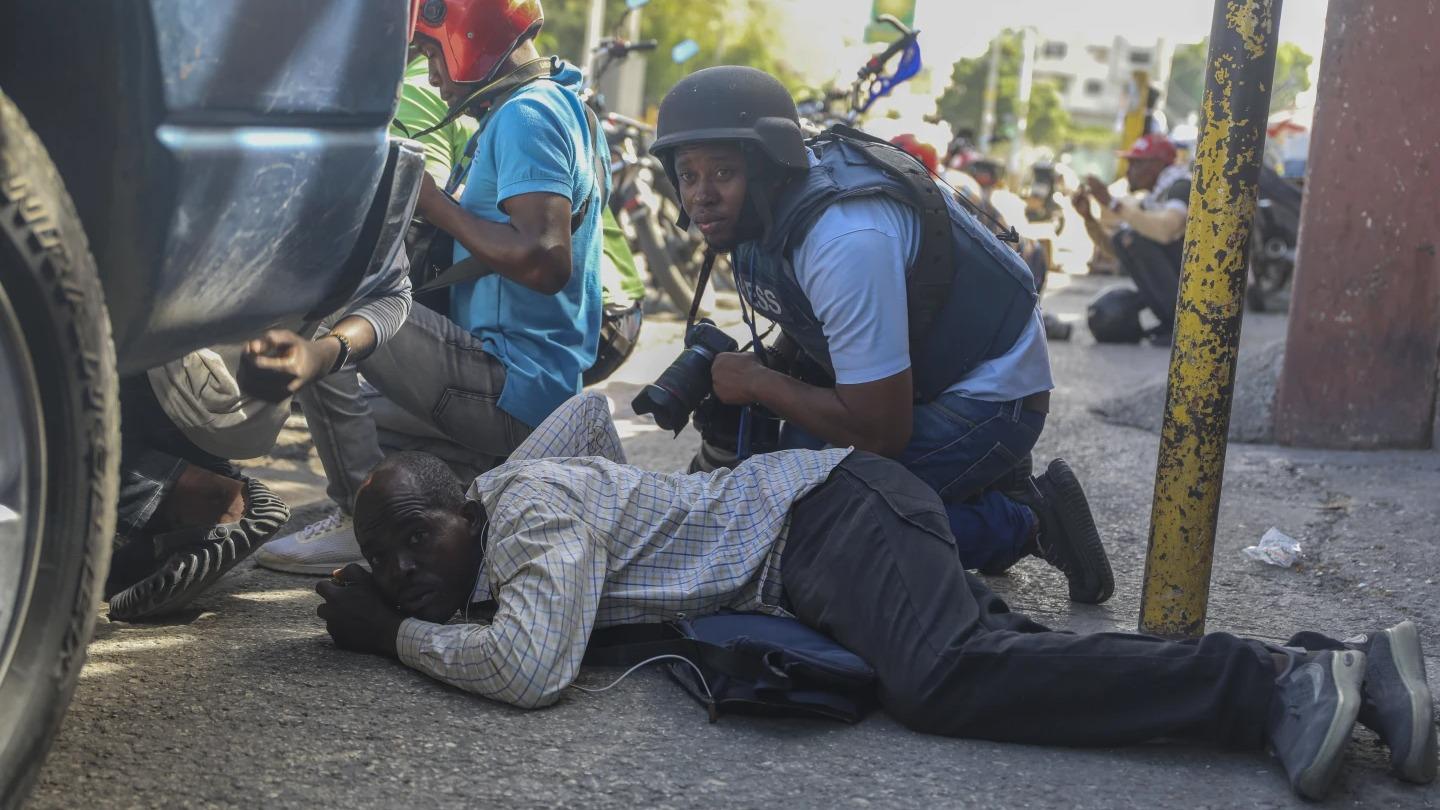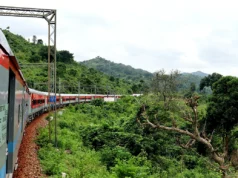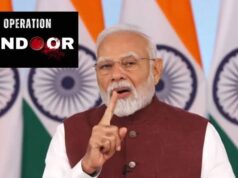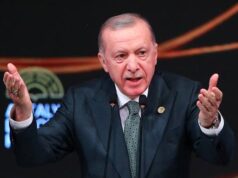Haiti’s main airport shuts down as gang violence surges and a new prime minister is sworn in

Journalists take cover from an exchange of gunfire between gangs and police in Port-au-Prince, Haiti, on Nov. 11, 2024.
Haiti’s international airport shut down on Monday after gangs opened fire at a commercial flight landing in Port-Au-Prince, prompting some airlines to temporarily suspend operations as the country swore in a new interim prime minister who promised to restore peace.
The Spirit Airlines flight headed from Fort Lauderdale, Florida, to Port-Au-Prince was just hundreds of feet from landing in Haiti’s capital when gangs shot at the plane striking a flight attendant, who suffered minor injuries, according to the airline, the U.S. Embassy and flight tracking data.
The flight was diverted and landed in the Dominican Republic.Photos and videos obtained by The Associated Press show bullet holes dotting the interior of a plane.
The shooting appeared to be part of what the U.S. Embassy called “gang-led efforts to block travel to and from Port-au-Prince which may include armed violence, and disruptions to roads, ports, and airports.”
Spirit, JetBlue and American Airlines said Monday they were cancelling flights to and from Haiti.In other parts of Haiti’s capital, firefights between gangs and police broke out.
Rounds of gunfire echoed through the streets as heavily armed officers ducked behind walls and civilians ran in terror.
In other upper class areas, gangs set fire to homes. Schools closed as panic spread in a number of areas.
The turmoil comes a day after a council meant to re-establish democratic order in the Caribbean nation fired the interim prime minister Garry Conille, replacing him with businessman Alix Didier Fils-Aime.
The council has been marked by infighting and three members were recently accused of corruption.
As he was sworn in, Fils-Aime said his top priorities were to restore peace to the crisis-stricken nation and hold elections, which haven’t been held in Haiti since 2016.
“There is a lot to be done to bring back hope” he said before a room of suit-clad diplomats and security officials. “I’m deeply sorry for the people… that have been victimized, forced to leave everything they own.
“The country has seen weeks of political chaos, which observers warned could result in even more violence in a place where bloodshed has become the new normal.
The country’s slate of gangs have long capitalized on political turmoil to make power grabs, shutting down airports, shipping ports and stirring chaos.
The United Nations estimates that gangs control 85% of the capital of Port-au-Prince, while a U.N.-backed mission led by Kenyan police to quell gang violence struggles with a lack of funding and personnel, prompting calls for a U.N. peacekeeping mission.
Louis-Henri Mars, executive director of Lakou Lape, an organization working on peace building in violent areas of Haiti, said the political fighting has “allowed the gangs to have more freedom to attack more neighborhoods in the city and expand their control of Port-au-Prince.”
Civilians, he fears, will suffer the consequences.”There will be more lives lost, more internal displacement, and more hunger in a country where half the population is on the brink of starvation,” he said.
The transitional council was established in April, tasked with choosing Haiti’s next prime minister and Cabinet with the hope that it would help quell violence, which exploded after Haitian President Jovenel Moise was assassinated in 2021.
The council was meant to pave the way to democratic elections, but it has been plagued with politics and infighting, and has long been at odds with Conille, the interim prime minister they hand picked six months ago, who they fired yesterday.
Gangs have capitalized on that power vacuum to make their own power grabs.Conille railed against the council’s decision to fire him, calling it an illegal overreach of their powers.
“This resolution, taken outside of any legal and constitutional framework, raises serious concerns about its legitimacy and its repercussions on the future of our country,” he wrote in a letter.
Organizations including the Organization of American States tried and failed last week to mediate disagreements in an attempt to save the fragile transition.
On Monday, U.N. spokesperson Stephane Dujarric urged all involved in Haiti’s democratic transition “to work constructively together,” although he stopped short of offering an opinion on the move to oust Conille.
“Overcoming their differences and putting the country first remains critical,” he said. “What is important is that Haitian political leaders put the interests of Haiti first and foremost.”




